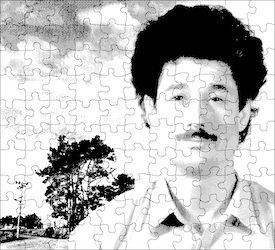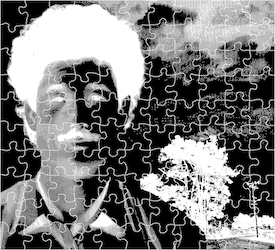

Apology
Eventually, I care less about myself and more about the world around me, which is not to say that poets devoted to individualistic forms are more egotistic. A form of modesty (using received forms) requires an egotism (permitting myself to match my skills against the authors of famous poems). But many other things motivated this book, especially as my life changed over the years of its composition.
Following the example of Jack Spicer, I wanted to write a book, not individual poems that I would later select and compile.
I tried to translate each poem into terms of my own experience and understanding, retaining as much of the original form as I thought appropriate for me, my skills, and my time. I thought of Ezra Pound’s theory of the poem as a vortex, into which would be pulled expressions of my life. The poet is also a vortex.
I chose One Hundred and One Famous Poems because of the challenge; many of these poems expressed ideas and feelings far from my concerns and sensibilities; others appeared so marvelous that I might have despaired of reproducing any part of them in my own terms. The disjunctions were sometimes difficult to bridge, but they were often stimulating. Sometimes, I could argue only against the original, exploring the opposite pole of attraction, an egotistical translation. But often the original was far more suggestive than the individual discoveries of interest and beauty among the chance occurrences of the life I led outside this book.
I had been more comfortable writing about the things as I experienced them. Writing this book freed me from the details of my immediate experience. I recollected my past and explored more public forms of consideration.
The puzzle pieces replace the oval portraits of the poets in the original book. Pieced together, they would reproduce the cover illustration (which is a picture of me taken by Katherine Kahrs pasted over euchalyptus trees and clouds) beginning, with the first poem, at my ear (for a poet must first of all listen) and spiraling clockwise toward the perimeter, into the sky.
I gave this book to Clifford Schwartz after I published it in 1995, and Clifford used it in a study group that he led, comparing my poems with the originals from the anthology edited by Roy Jay Cook. This inspired me to include the originals when I put my work online in 2012.